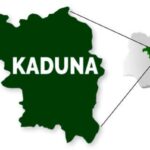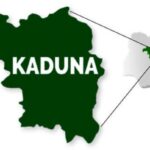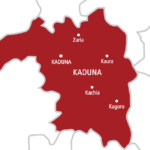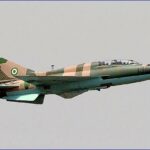The name we call violent organisations and movements can have serious implications on how both the government and society react or relate to them. For example, by continuing to refer to the perpetrators of wanton violence across much of the North West as ‘bandits’, rather than the terrorists that they have since become, we risk deflecting the right measure of government and public attention on them and their violent activities.
Indeed, in Nigeria, a whole politics has emerged around how violent non-state actors are named, and in ways that have had profound consequences on how the Nigerian government and people have related to these groups. In the late 1990s and early 2000s, when groups such as the Movement for the Emancipation of the Niger Delta (MEND) began to destroy oil installations, kidnap foreign and local staff of the oil companies, and engage in armed insurrection against the Nigerian state, what they were doing was terrorism pure and simple.
But the press, and later government too, euphemistically and sympathetically called them ‘militants’ and referred to their terrorist activities as ‘militancy’. Among other effects, referring to that brand of terrorism as ‘militancy’ emboldened the perpetrators to do worse, absolved them of responsibility for their violent activities, desensitised the public to the violence they regularly unleashed, and pushed the moral burden of it all on the Nigerian government, rather than on the perpetrators where it belonged.
Today, with the increasing number and ferocity of violent non-state actors in the country, this politics of naming has taken a whole new dimension. Both the government and the press cherry-pick which armed groups to label “terrorists”, and which ones to call by other names. Much of the mainstream media, for example, refer to the leaders of violent separatist movements like the Indigenous People of Biafra (IPOB) and Yoruba Nation as ‘agitators’, ‘freedom fighters’, ‘rights activists’, and so on, in brazen disregard of the violence or threats of violence that these movements and their leaders engage in or incite to pursue their aims.
Meanwhile the federal government itself has officially designated IPOB as a terrorist organisation, and has declared leaders of Yoruba Nation wanted for the same reasons. But it has lacked the moral and political courage to declare the Niger Delta Avengers (NDA), a successor of MEND, as a terrorist organisation, which it is under our own laws. Indeed, the government itself negotiates openly and publicly with the Avengers, often in response to their actual use of violence or threats of it.
We reject this politics of naming violent groups in Nigeria. We believe that terrorism is terrorism regardless of who does it, and irrespective of where it happens, or for what reasons. The overriding criterion for what constitutes terrorism is the use or threats of violence of any kind against the state, persons, organizations or legitimate businesses to pursue any ends, whether those ends be religious, political, economic, environmental or whatever.
All of which leads us back to the ‘banditry’ ravaging Zamfara, Kebbi, Katsina, Kaduna and Niger states. When this crisis started in these areas nearly a decade ago, the perpetrators were tagged as “gunmen” or “cattle rustlers”, and later both the government and the press, and by extension the Nigerian public, settled for “bandits”. But this is no longer just ‘banditry’ and the perpetrators are no more just “bandits”. This is now a full blown terrorism, and should not be called by any other name.
The indications are very clear. As Daily Trust exclusively reported late last month, various factions of Boko Haram are making efforts to massively recruit ‘bandits’ into their ranks. Nigerians are not aware to what extent this deadly development has happened, and the Nigerian government which should know has not said. But what we all call ‘banditry’ has lately seen an exponential scale-up in violence, weapons, targets, and demands, and in ways that reek of terrorism.
In the last month alone, the ‘bandits’ have killed a total of 459 persons, abducted 390 others, and raided or razed tens of villages across Zamfara, Kebbi and Niger states, according to another Daily Trust report last week. Moreover, they killed 15 policemen in a single day, shot down an Air Force jet a few days later, and engaged in retaliatory attacks on villagers for providing information about them to security operatives. Above all, their demands have now gone beyond ransom from hapless relatives of their victims to include release of fellow gang members or their relatives and a call to end all military or community efforts against banditry.
All of these is terrorism, pure and simple. As Section 1(2) of Nigeria’s Terrorism (Prevention) Act 2011 makes very clear, the actual use or threat of violence of any kind by anyone that is intended to compel government, international organisation, or members of the public “to perform or abstain from performing any act”, is terrorism.
We believe that till date, the government has not paid as much attention to this group as it does the Boko Haram because it sees them as mere criminals. But experience has shown that that is not the case. Instead of diminishing, they are gaining strength in numbers, expanding to more areas and have become more daring.
We, therefore, call on the federal government to declare banditry as terrorism and bandits as terrorists without any reservation. We believe that doing so will refocus both the government’s and the public’s attention to the serious threats this form of terrorism poses to our national security and peaceful co-existence as one country under God.
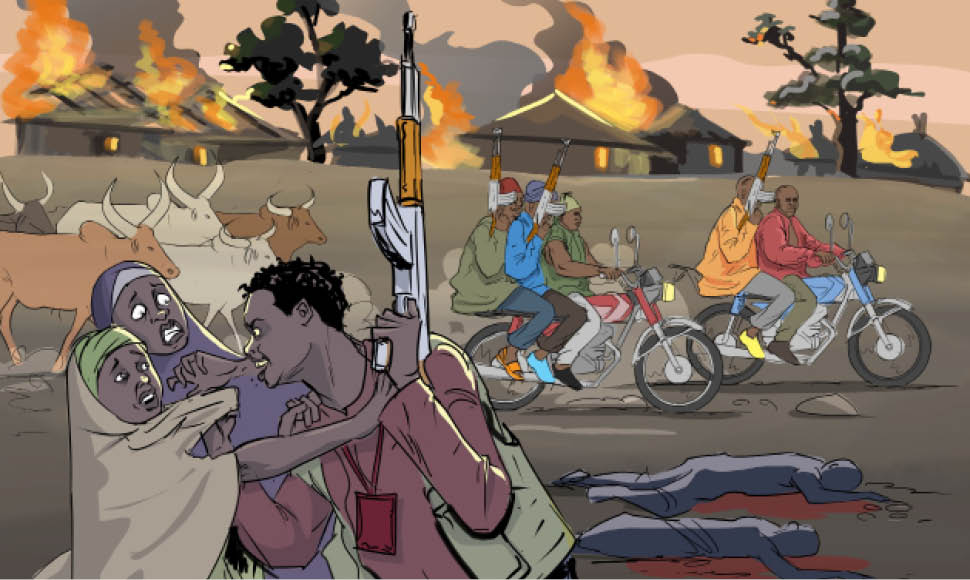
 Join Daily Trust WhatsApp Community For Quick Access To News and Happenings Around You.
Join Daily Trust WhatsApp Community For Quick Access To News and Happenings Around You.